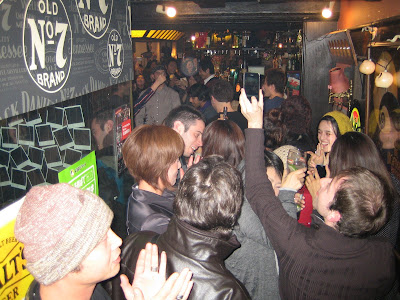I sent this to Pop-pop earlier, but thought some other people might be interested:
'Sensei' can be roughly translated to 'teacher' or used as a title for certain professions. For example, when someone asks me what I do I say I am an English 'Sensei' or teacher. Alternatively, I am typically called 'Sam-sensei' which translates 'Mr. Sam' not 'Sam-teacher' (though some Japanese make this mistake). Ostrander would be "Oh-su-to-ran-da" in Japanese, is very awkward to pronounce and kids often mistake it for Australia - no joke - so I simplify it by using my first name.
In addition to teachers, 'sensei' is also used as a title for other respected professions such as doctors, lawyers, and elected officials. So 'Coury-sensei' could be translated as 'Dr. Coury' and 'Ostrander-sensei' (for Ben, a lawyer) would be 'Mr. Ostrander'.
Japanese names run opposite from English and typically have some kind of title at the end. 'Mr. Joe Coury' would be 'Coury Joe-san' in Japanese. '-sama' is used as a more polite title for strangers or customers, so if you went to a Japanese hotel you would be called 'Coury-sama'. These titles don't distinguish between gender, so Nana would also be 'Coury-san' or 'Coury-sama'. Japanese people often get confused between 'Mr.' and 'Ms.', and especially by 'Miss' and 'Mrs.'
(Peter, not having an honorable profession like myself or Ben would be relegated to the title 'Ostrander-san')
There are even some titles for less formal relationships. Girls and very young boys are called '-chan' as in 'Maggie-chan' or 'Teddy-chan'. The word for baby is actually 'aka-chan' which means 'little red child'. Similarly, girls I know outside of work who are roughly the same age as me or who are family members I would call '-chan', as in 'Sarah-chan'. It is also used for grandparents, so I would probably call you 'Ojii-chan' and Nana 'Obaa-chan'.
Similarly, '-kun' is used for boys, especially when they are deemed too old for '-chan'. So I would probably call Peter and Ben 'Peter-kun' and 'Ben-kun'. Girls I know outside of work typically call me 'Sam-kun'.




















